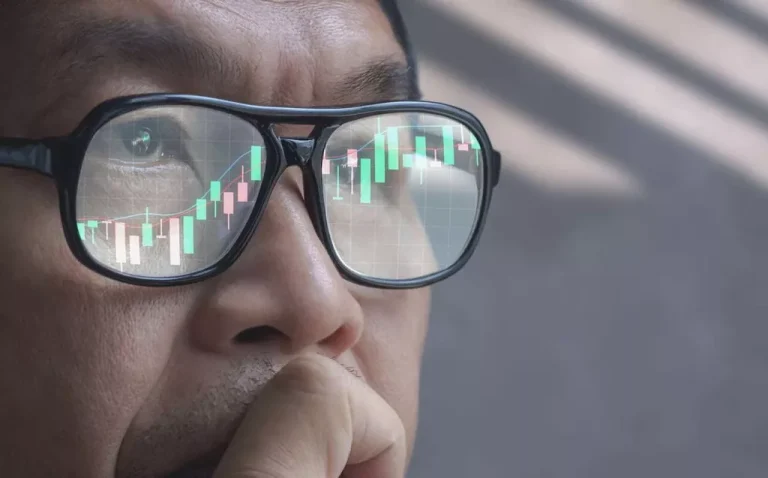Content
But it’s not just about quality; the quantity of data needed to train AI models is extremely large. While AI has been transforming trading, developing effective broker ai AI-based solutions for stock markets comes with its own set of hurdles. In this article, we share our insights on using AI for stock trading, explain how it works, and showcase real-life use cases. This means that the era of relying solely on personal analysis and gut feelings for investment decisions is coming to an end. How do people feel about a new product from a company in the Dow Jones Industrial Average?

Ethics and AI Regulation in Stock Trading

They Proof of stake can set predefined stop-loss limits to minimize losses and dynamically adjust these limits based on market conditions. This is particularly important in a volatile market like India, where stock prices can swing dramatically in a short amount of time. In market making, the algorithm places both buy and sell orders for a stock at the same time. It profits from the difference between the buy price and the sell price (known as the “spread”).
How AI Trading Technology Is Transforming the Stock Market
Leveraging AI in investing greatly improves data analysis by rapidly and accurately processing large volumes of financial information. While traditional methods may falter under the complexity and scale of data, AI algorithms excel at navigating extensive datasets, extracting valuable insights, and presenting them clearly. This https://www.xcritical.com/ integration of artificial intelligence in investing processes majorly boosts efficiency and analytical accuracy. This gives investors a major competitive edge in navigating the volatile financial markets of today. Artificial Intelligence (AI) is fundamentally reshaping investment analysis through its advanced data processing and decision-making capabilities. Large Language Models (LLMs) are central to this transformation, offering sophisticated tools for parsing and understanding extensive unstructured data, such as financial reports, news articles, and market commentary.
From Challenge to Opportunity: The Role of CRM in Business
- AI adds a layer of intelligence to analyze, interpret and guide decision-making on a wide cross-section of data, ranging from front-to-back-end services and market data, to pricing, reference data and ESG data.
- This shift has been a game-changer for investors, providing them with an arsenal of tools and insights to adeptly navigate the complexities of stock markets.
- By analyzing news titles, social media comments, blogs, and more, AI can forecast the direction of stocks and the moves of different traders via sentiment analysis- the process of classifying opinions (or sentiment) people have given in the text.
- Additionally, AI’s ability to reveal hidden opportunities and better manage risks is fueling enthusiasm throughout the investment sector.
- An AI-based stock trading app, TrednSpider helps in creating, testing, and optimizing the user’s trading algorithm, in addition to automated trading techniques.
- This has not only enhanced customer experience, but also credit approval rates, while increasing transparency and trust in the credit decisioning process.
By prioritizing data privacy, engaging proactively with regulators, mitigating risks related to bias and accuracy, and addressing cultural and strategic hurdles, banks can leverage AI’s potential to the full. This comprehensive approach ensures that the adoption of AI in banking is not only technologically innovative but also ethically responsible and aligned with the long-term interests of customers and the broader financial ecosystem. The integration of AI into the cybersecurity framework of the banking sector encapsulates the technology’s dual nature as both a potential risk factor and a critical defensive tool.
Best practices for AI trading platform development
AI algorithms enable hedge funds to quickly test, refine, and implement quantitative trading strategies. These algorithms can process immense datasets and execute high-frequency trades with efficiency. They uncover market inefficiencies that often elude human traders, providing them with a competitive edge.
However, as the potential of AI in the stock market is still evolving, let’s understand what the future holds for AI in stock trading. Artificial intelligence can make an understanding of the broad datasets that humans would take a long time to process. By using AI to trade stocks, users can identify trends and patterns with high accuracy and execute decisions based on such information. One industry that has seen significant advancements due to the AI applications is stock trading as the technology has enabled the traders to make more informed decisions and improve their trading strategies. Based on these forecasts, traders can adapt and refine their strategies and make well-informed decisions rather than relying solely on intuition. AI-powered integrated risk management systems provide insights into potential risks and abnormal market occurrences, analyze different scenarios, and predict their outcomes.
It’s not just about stock trading anymore; it’s about offering a holistic view of personal finances, helping investors make better-informed decisions about their wealth. This move is a testament to the evolving landscape of financial technology, where the focus is increasingly on providing comprehensive, AI-driven solutions for all aspects of personal finance management. AI is also a powerful ally in detecting fraudulent activities such as insider trading, market manipulation, and other fraud. By continuously monitoring trades, communications, activities, and anomalies, AI helps detect potential illegal practices to protect the integrity of hedge funds. As a professional in the finance world, you’re probably not a stranger to rapid operational advancements, and if you’re working in the hedge fund industry you know that Artificial Intelligence (AI) is a game-changer. Hedge funds are increasingly adopting AI and machine learning to enhance investment decision making, risk management, and overall efficiency.
AI shifts from traditional rule-based systems to predictive, risk-based surveillance, identifying data patterns for informed decisions. For instance, AI-based tools monitor customer communications beyond lexicon-based reviews, deciphering tone, slang, or code words indicative of risk or non-compliance. AI has the potential to enhance stock market analysis by processing data quickly and uncovering insights that may not be apparent through traditional methods, potentially improving trading strategies and outcomes. While this can be advantageous in terms of removing emotional biases, it also makes these systems vulnerable to market manipulation.
Meanwhile, the signal-to-noise ratio is much higher for streaming video recommendation systems –if a person enjoys a movie in a given genre, there is a good chance they will like other movies in that genre. In general, practitioners have found that ML-derived alpha models outperform those generated from more traditional linear models in predicting cross-sectional equity returns. AI could mean a continuing rise in the importance of nonbanks, particularly broker-dealers, trading firms, hedge funds, and related entities who are well placed to take advantage of this new reality without the burden of intrusive supervision.
Below, we explore examples of firms integrating AI into their compliance and risk management processes. If the trading strategy involves automated execution, the AI system directly interfaces with the brokerage platform or market exchange to execute trades. In this stage, relevant features are extracted from the preprocessed data to represent different aspects of the financial market. Features may include moving averages, trading volume, volatility, news sentiment scores, and other indicators.
Deep learning algorithms use sophisticated neural networks, which mimic the human brain in order to extract meaningful information from unstructured data on trading, including text, audio, and images. Stock trading operations are subject to risks that can lead to significant financial losses. These risks can be mitigated with the help of AI algorithms that identify anomalies, inconsistencies, and unusual patterns or activities and help prevent churning, spoofing, wash trading, and other fraudulent manipulations.
In a faster reacting market where nonbanks may continue to rise in importance, various aspects of regulation and supervision in AI-related areas should be enhanced. The above-mentioned factors are constantly evolving and bringing new values and opportunities to businesses, to effectively capitalise on the advantages offered by AI. The BFSI market is ideally positioned to be part of this disruption and advance in its digital transformation journey. “Perhaps the easiest implementation of ChatGPT is to produce summaries from text-based documents, images and slides, from which you can extract important insights,” said Wong.
Deeper credit analysis and intelligent decisioning will boost operational efficiency and transform customer experience, while improving risk assessment and mitigation capabilities. Almost 75% of the world’s largest organisations have already integrated AI within their business strategies, says an Accenture survey on AI maturity. AI is rapidly being incorporated into their operations, with several pilot initiatives being scaled up and companies reporting better-than-expected outcomes. This means industry players need to accelerate and upscale their offerings to unleash the full potential of the AI revolution. On the other side, some AI challengers have been very successful at developing a pool of trader talent, deep business relationships, and extensive asset networks, so they may not have seen immediate advantages to adopting advanced analytics and AI.
